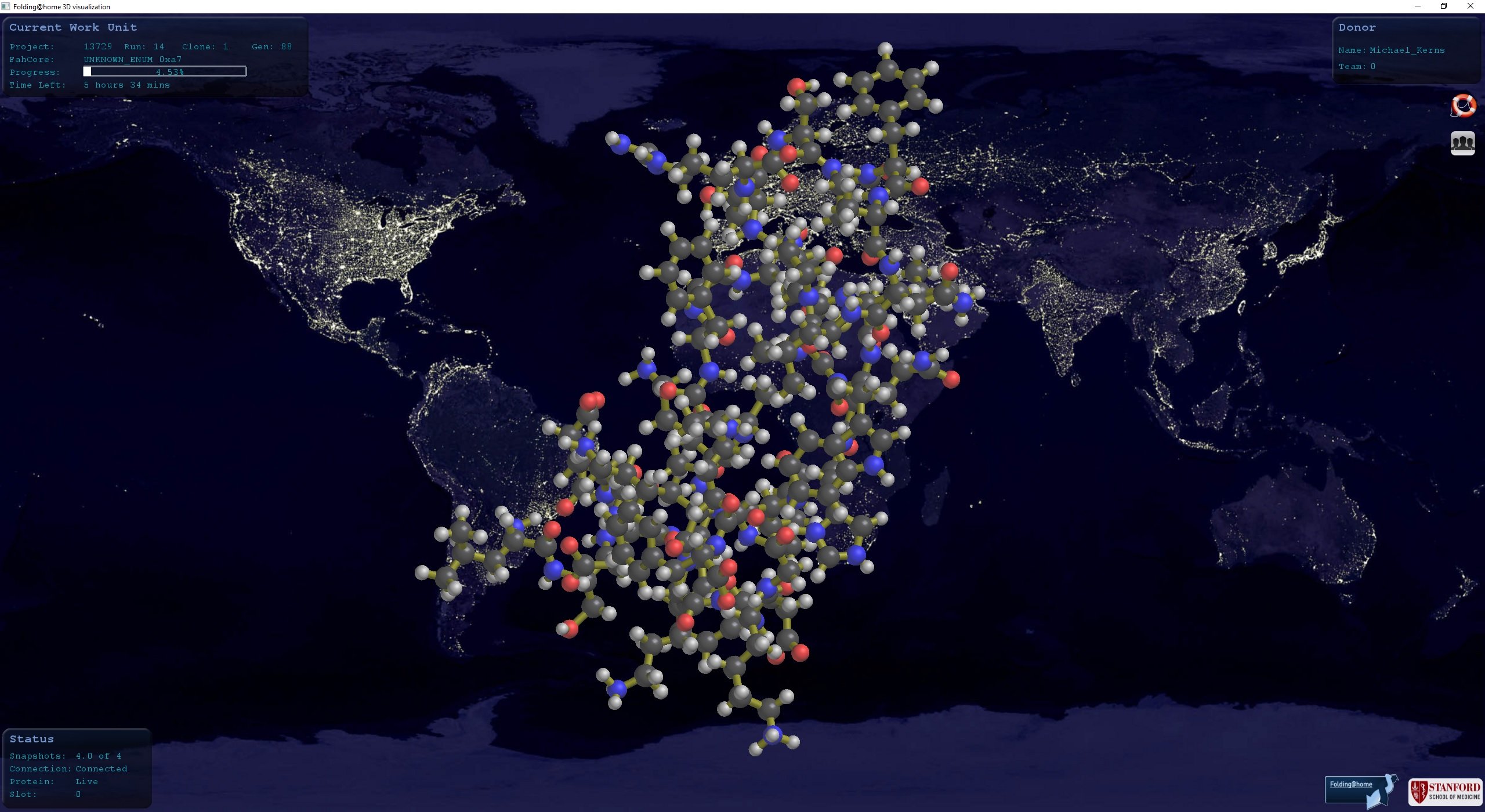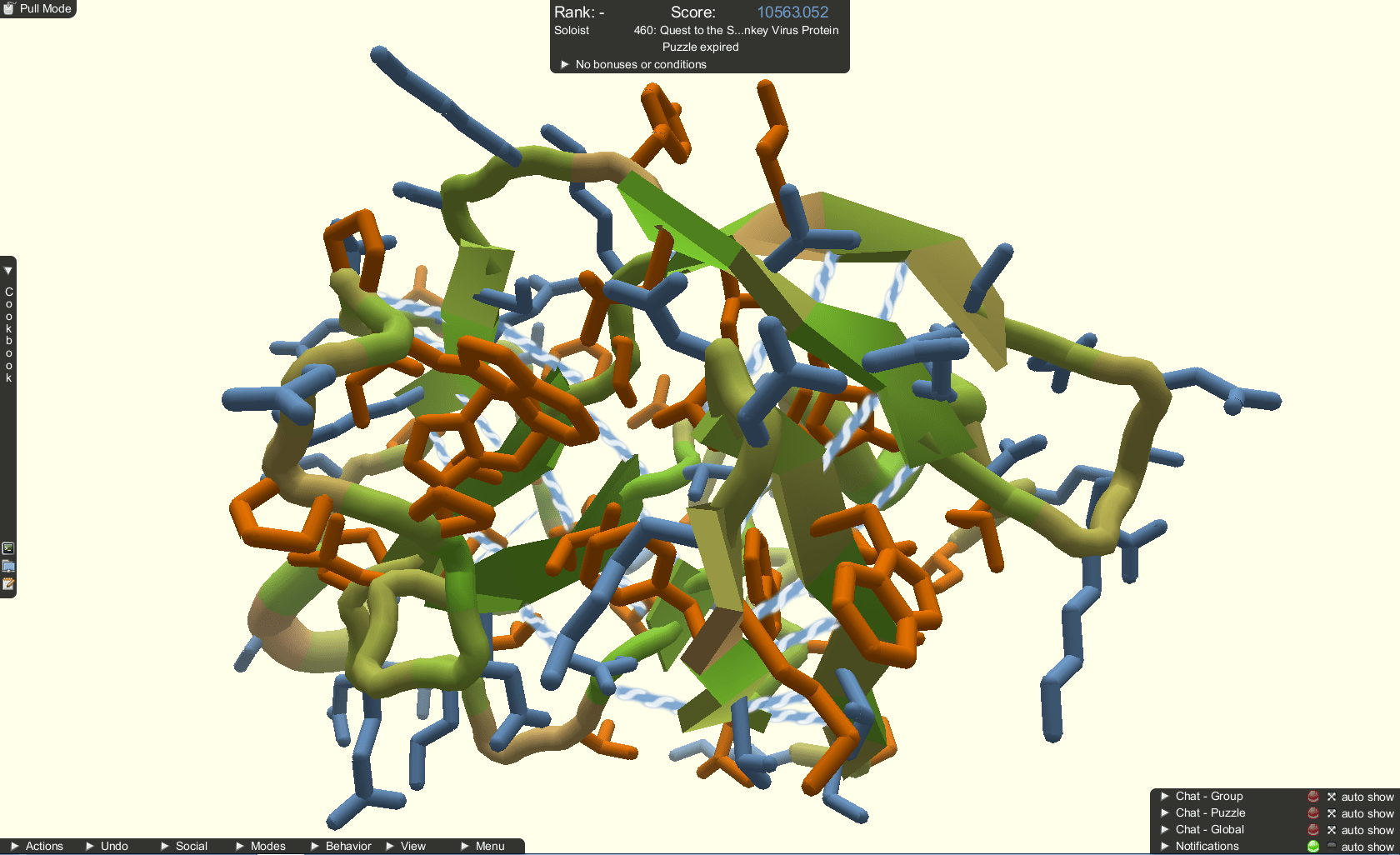© 2000-2023 - Enkey Magazine - All rights reserved
ENKEY SNC - VAT ID IT03202450924 / REA Code CA253701 - Phone. 078162719
In this fragile period when the coronavirus is stopping all of us, many helping services were activated. From the fundraising to help the hospitals, like the initiative of Chiara Ferragni and Fedez which were able to collect three million and half of euros, to the digital solidarity. But everyone can support the others in this situation, without necessarily have to donate some money. Let’s so see how to help the research to fight this new virus.
The Citizen Science against the coronavirus
We are talked about a similar initiative a while ago, even in this case it’s an initiative of citizen science that provides the “donation” of the computing power of our own pcs to help scientific research projects.
The software is made by the University of Stanford and it’s call Folding@home and it simulates the protein folding, process that helps to decide how to better deal with severe illness like the cancer. But the applications are countless, infact it can be used even to fight virus like the Sars or the coronavirus. To find an effective cure and understand which are the possibilities of any relapse, we have to study how the virus binds to the protein of the lungs.

Specifically the protein involved in this are the ones of the virus (which it’s call spike protein) and the one of the lung surface. And it’s important to find it out and to study how it moves and how it takes alternative shapes, to better fight it.
To do a prompt work we might have devices with a higher computing power, or we can use the force of many computers together. By handing over small parts of calculation to every device and then “adding” the results obtained, by creating in this way one of the biggest computing system existing. To do it we don’t have to do donation or complex acts, but few easy clicks.
It’s enough to go to the website foldingathome.org and download the program. Once installed we just have to leave the computer on when we don’t need it (while we watch a movie or during the night) but even during our normal activities to give the computing power that we are not using.
If we feel a slowing down during the normal usage we just have to decrease the computing power that we are sharing or decide to share it only when we are not using the computer.
Helping the research with Foldit
If instead you would like to have a more active part in the research, so you can use a videogame. The University of Washington realized a videogame which purpose was the one to build the proteins. You will so help the researchers to find out all the possible combinations.
The videogame is call Foldit and it’s freely downloaded from the play stores, for every platform. In this way you will have fun by helping though the research. Nowadays there are about 20 thousand active players that build tirelessly new proteic combinations.

The most interesting results are tested for real and, if they are deemed reliable, they will be really realized to demonstrate their effectiveness.
Foldit uploaded a special upgrade right for the coronavirus. The developers suggest to firstly follow the introductive puzzle to better understand how the game works. Afterwards we will have the access to the Science Puzzles in version Beginner where is the the one dedicated to the Coronavirus.
But it was introduced even an update for the advanced version, where it’s possible to plan an antiviral protein starting from zero and help so the research. On the dedicated blog it’s possible to follow all the upgrades of the game about the coronavirus. In the following video instead we can see how they test and create the most promising proteins for real, created by the users, in the labs of the University of Washington of the Institute Protein Design in Seattle.
This post is also available in:
 Italiano
Italiano

